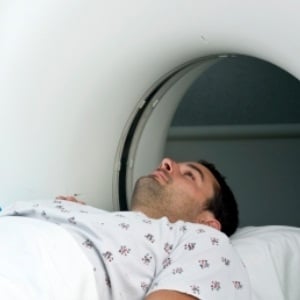
Many doctors ignore guidelines about the treatment of back pain and instead turn to extensive use of scans like MRIs and the most addictive types of painkillers, new research finds.
It's not clear exactly how many aren't following recommendations, nor whether they're causing harm or perhaps just not helping patients get better. Researchers also don't know if the physicians are unaware of the guidelines or simply don't want to follow them.
Still, the findings are troublesome, said study author Dr John Mafi, chief medical resident at Beth Israel Deaconess Medical Center in Boston. While they may be appropriate in some cases, treatments like scans and powerful painkillers "are increasingly being overused, and unnecessarily so," he said. "Doctors are increasingly not following guidelines."
Back pain and neck pain (which the new study combines into one category) are very common in the United States. According to estimates, they account for more than 10% of all visits to primary care doctors and cost $86 billion to treat.
Established, national guidelines suggest that routine back pain be treated with physical therapy and painkillers including aspirin-like drugs and acetaminophen (Tylenol). Only rare cases are thought to need more aggressive treatment, such as imaging scans.
Dangerous radiation
The study authors looked at a database of nearly 24 000 US medical visits from 1999 to 2010 that were related to back pain. People with serious conditions potentially linked to their back pain – like cancer – were not included.
The researchers found that the use of aspirin-like painkillers and acetaminophen fell from about 37% in 1999-2000 to 24.5% in 2009-2010, while the use of narcotics – which can be addictive – jumped from 19% to 29%. Use of physical therapy remained steady at about 20%, while referrals to other physicians doubled, from nearly 7% to 14%.
Meanwhile, use of X-rays remained stable at about 17%, while use of CT scans and MRIs rose from about 7% to 11%. CTs and MRIs have become much more common over the past two decades, prompting some physicians to warn that they're exposing too many patients to unnecessary and dangerous levels of radiation.
"There's a huge potential for cost savings, to improve the quality of care and reduce unnecessary procedures that can lead to patient harm," Mafi said.
Ignoring guidelines
Why do so many physicians seem to be ignoring the guidelines? The study doesn't offer insight into that question, but Mafi suspects the desire for a "quick fix" is at play. "The problem is that it really takes a lot of patience to manage back pain," he said.
To make matters more complicated, the existing treatments don't cure back pain but only treat its symptoms, he said. "Even so, patients want a cure, and doctors want to be able to give them a cure."
Dr Donald Casey Jr., a general internist and chief medical officer for the NYUPN Clinically Integrated Network, wrote a commentary about the new study and offers ideas about how to fix things. It's not a matter of doctors not doing their jobs properly, he said. "Instead, it's that health care has gotten so complex."
What to do? "For one," he said, "we've got to put better training in place to help sort out which of these patients fall into the category of more serious problems versus something that's more run of the mill."
The study appeared online July 29 in JAMA Internal Medicine.
More information
For more about back pain, try the US National Library of Medicine.




 Publications
Publications
 Partners
Partners











